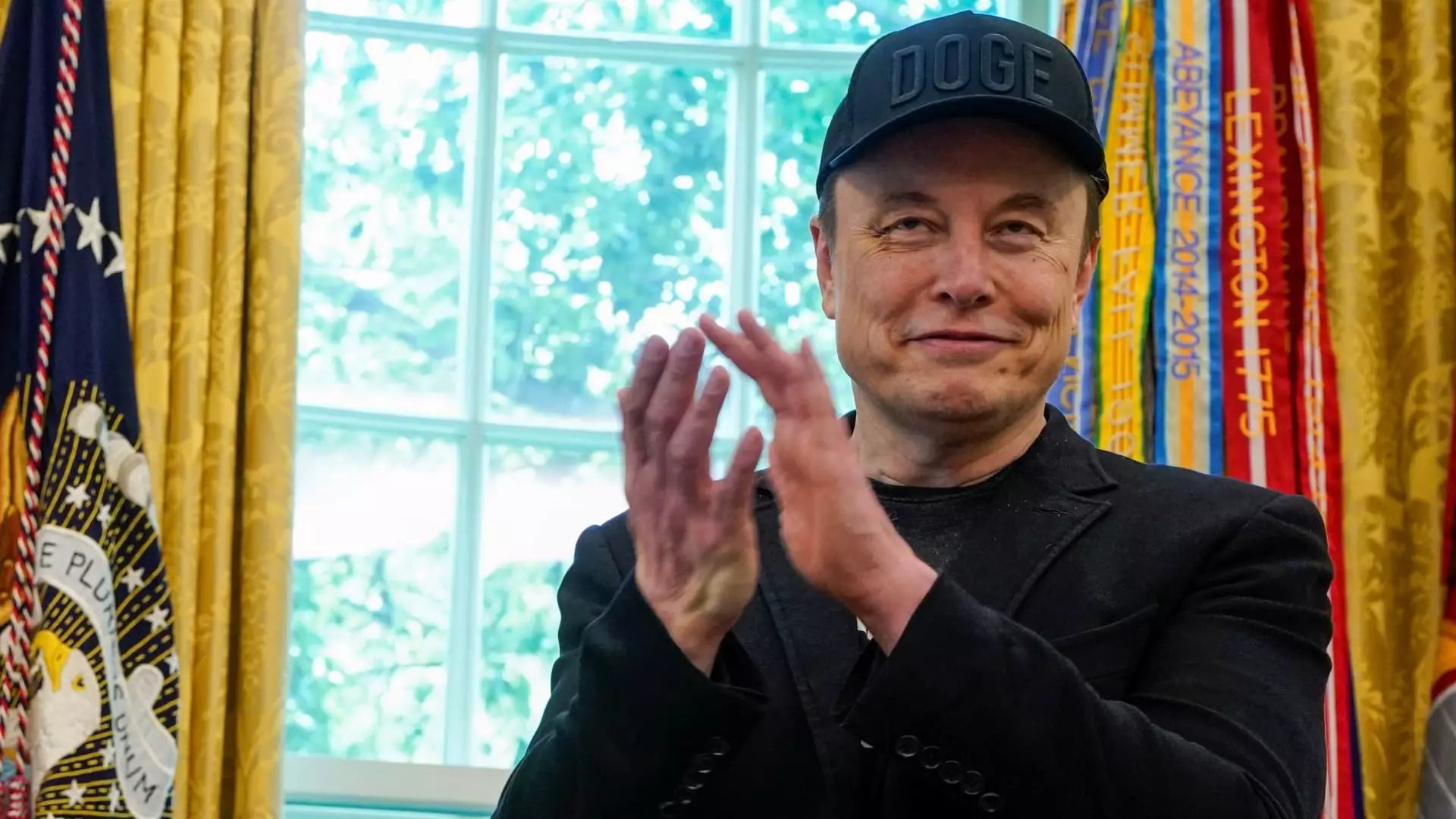Elon Musk’s announcement of the “America Party” sparks a mixture of intrigue and skepticism, revealing much about the current state of American politics. Musk, a billionaire celebrated for pushing technological boundaries, now ventures into the tumultuous realm of political realignment. His claim that this new party aims to restore individual freedom resonates with many who feel alienated by the polarized mainstream parties. Yet, amid the grandeur of his rhetoric, one must critically examine whether Musk’s intentions are genuinely committed to meaningful change or merely a strategic play to sway the political landscape in his favor.
While Musk emphasizes the small-scale focus on a handful of Senate seats and House districts, this approach is both savvy and narrow-minded. Targeting just a few pivotal races suggests an attempt to wield disproportionate influence over legislation, especially in a highly fragmented Congress. However, such an initiative risks oversimplifying complex policy issues—reducing substantial debates to a mere power play. It also raises questions about whether this effort will foster genuine representation or merely serve as a spoiler, undermining the stability of traditional parties that, despite their flaws, offer a broader spectrum of ideas.
Strategic Ambitions or Political Self-Interest?
Musk’s recent shift from alliance to opposition with figures like Donald Trump raises eyebrows. His substantial campaign contributions to Republican candidates, combined with his vocal displeasure toward Trump’s policies, suggest Musk’s new party could be driven by personal ambitions more than a clear political philosophy. If his primary goal is to carve out a niche for himself, it risks exacerbating polarization rather than healing it. Politics needs leaders who prioritize substantive policy reforms over spectacle, and Musk’s foray into politics appears more aligned with the latter.
Furthermore, Musk’s flirtation with creating a new party indicates a desire to manipulate the system rather than fundamentally transform it. The fact that the party isn’t registered with the Federal Election Committee shows a lack of transparency and commitment—traits often associated with fleeting political spectacles rather than enduring institutions. His willingness to work with other parties behind the scenes suggests an understanding that true systemic change requires broader alliances and consensus, yet his current approach feels more like a power move than a genuine invitation for national unity.
The Risks of a Fragile Political Experiment
Emerging political parties in America historically face an uphill battle: fragmentation, skepticism from voters, and the challenge of establishing legitimacy. Musk’s America Party risks repeating this pattern, especially if it remains a vehicle for individual influence rather than a credible alternative. Its success hinges on whether it can develop a distinct, compelling platform that appeals outside Musk’s immediate sphere of influence.
At a time when American democracy faces crises of trust and effective governance, adding yet another party with unclear objectives could further complicate progress. Instead of fostering meaningful dialogue and solutions, Musk’s initiative might merely serve as a distraction—an attempt to override the messy but essential process of bipartisan negotiation.
In the end, Musk’s political gamble reflects a broader truth: that those with unparalleled wealth and influence often underestimate the nuanced intricacies of democracy. True change demands more than strategic positioning; it requires a commitment to critically engaging with diverse voices and complex issues. The America Party’s future will depend on whether Musk genuinely aims to empower the American people or simply to extend his personal influence at a time when the nation desperately needs authentic leadership.


Leave a Reply